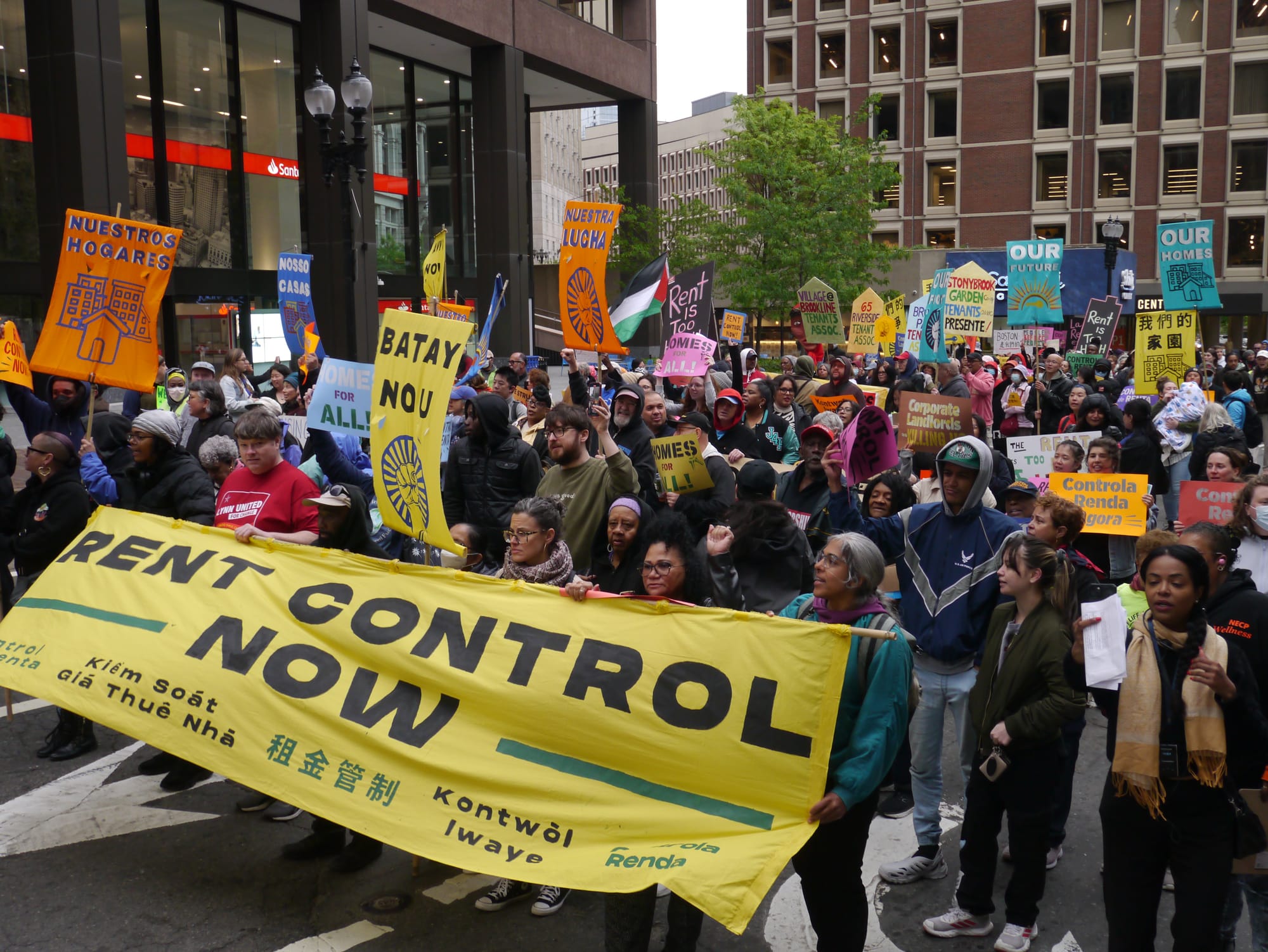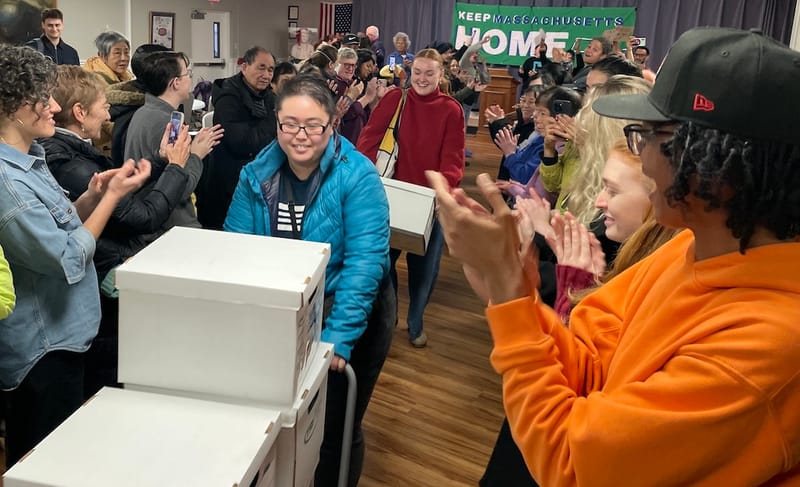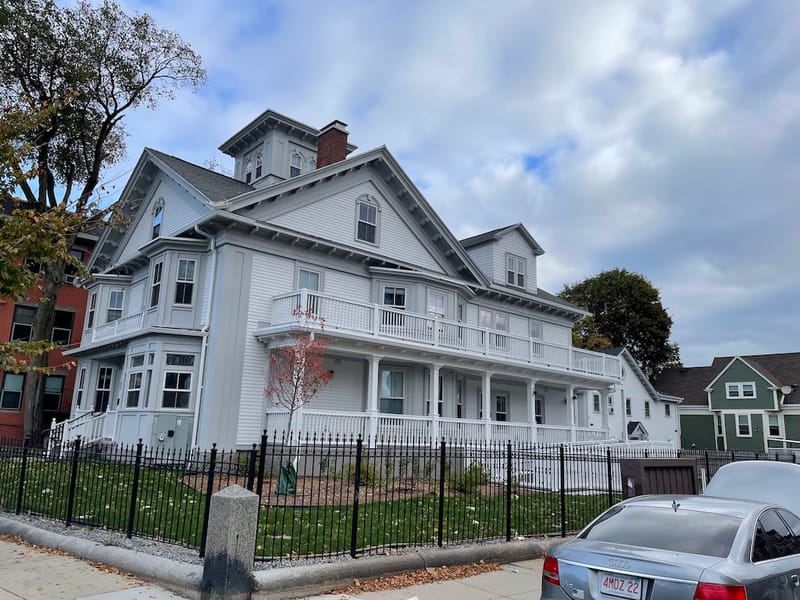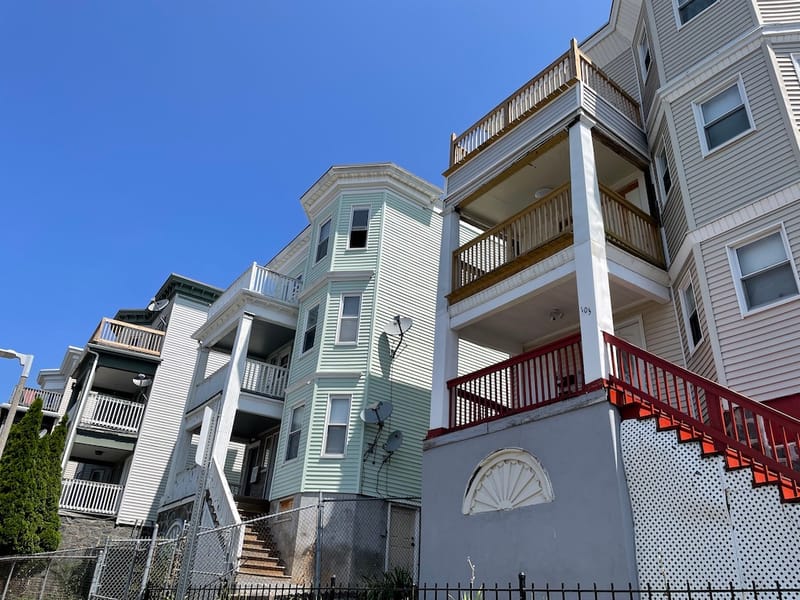Activists march for rent control
Activists from Greater Boston-area cities and towns marched on the State House as part of a national demonstration against the Trump administration’s planned cuts to federal housing programs.
Activists from Greater Boston-area cities and towns marched on the State House Tuesday, May 20 as part of a national demonstration against the Trump administration’s planned cuts to federal housing programs.
While the demands activists articulated at the JFK Federal building revolved largely around defending federal funding for housing, when the march reached the State House the focus was on rent control.
“We need all of our elected officials to hear our demands,” said Baolian Kuang, an organizer with the Chinese Progressive Association. “People are working two and three jobs and it won’t be enough to catch up with the rising costs of rents if we don’t do something about it.”
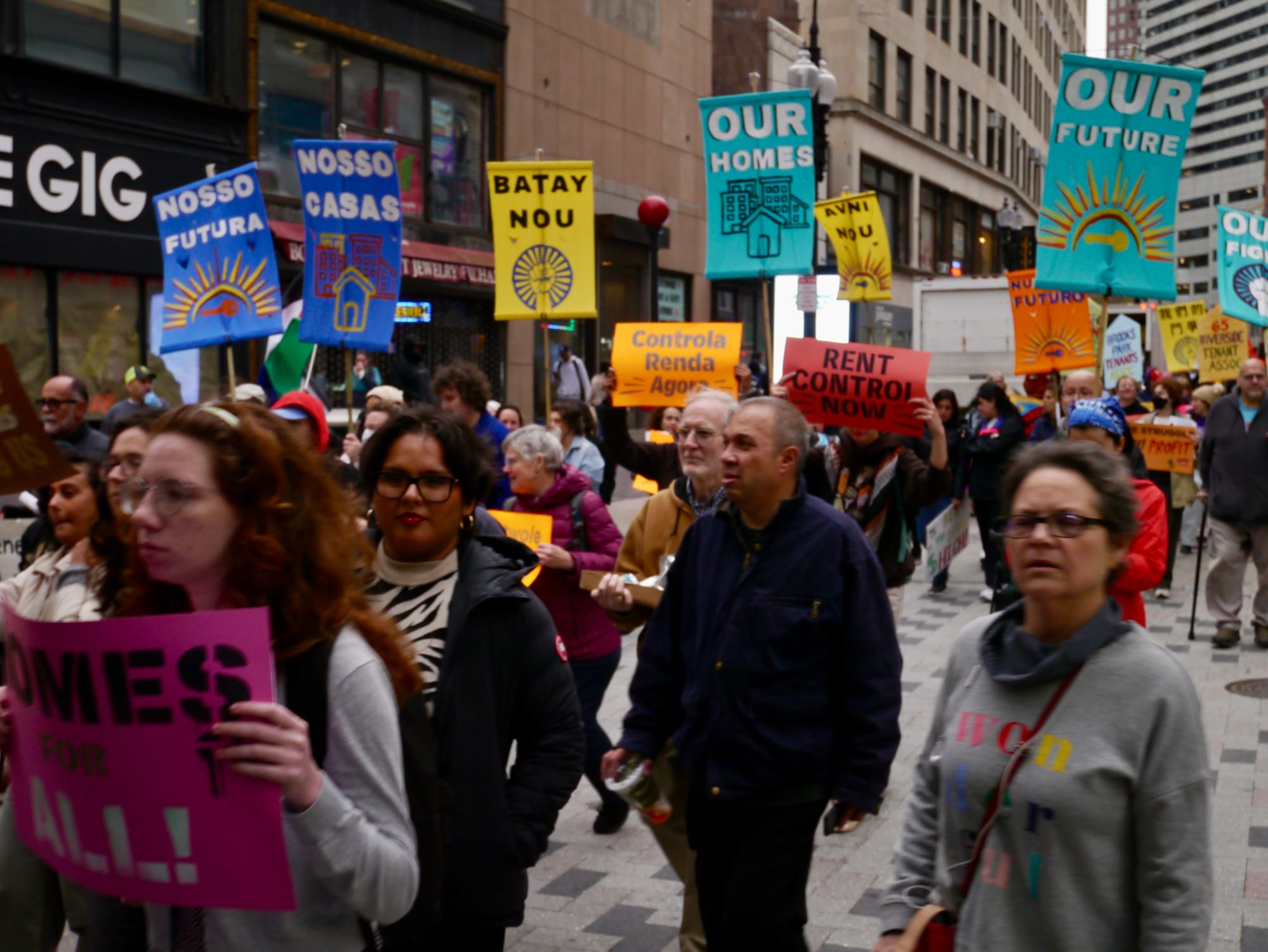
Rent control ended in Massachusetts after a real estate industry-funded ballot initiative passed in 1994. Although voters in Boston, Cambridge, Brookline and Somerville — the communities with rent control laws on the books — voted overwhelmingly against the ballot measure, 51% Massachusetts voters supported it.
In the late 1990s and early ’00s, activists tried repeatedly to pass home rule petitions to re-instate different forms of rent control, but were blocked by local elected officials. Last year, Boston city councilors and Mayor Michelle Wu backed a home rule petition to allow local communities to enact rent control, but were blocked by state lawmakers, who have consistently sided with the real estate industry in its opposition to rent stabilization measures.
This year the coalition pushing for rent control includes the groups Homes for All, the Chinese Progressive Association, The New England Community Project, City Life/Vida Urbana, Lynn United for Change and other groups across the state. In addition to advocating for local communities to have the right to impose rent stabilization measures, coalition members are also seeking passage of the Tenant Opportunity to Purchase Act, legislation that would allow tenant organizations the right of first refusal when their building is put up for sale.
“We need to develop social housing that is permanently affordable, that is controlled by the people living in the units,” said Lydia Lowe, executive director of the Chinatown Community Land Trust.
If lawmakers again refuse to pass a law allowing local communities to pass rent control, supporters say they’ll likely bring a measure to the Ballot next year.
“We are building a powerful movement that is multi-racial, multi-cultural and multi-generational,” said Noemi Mimi Ramos, executive director of the New England Community Project, a grassroots organizing group. “We are building power across Massachusetts. This is a fight for our future. We want to make sure politicians at City Hall and the State House hear our voices.”
Ramos and others say the fight for housing affordability comes at a time when the Trump administration and Republicans in Congress are proposing a 40% cut to federal housing programs, a cut that would hit Boston and other Massachusetts cities particularly hard.
“The cuts proposed by in the Trump budget would be apocalyptic for our communities,” said Isaac Hodes, executive director of Lynn United for Change. “In real terms, it would mean taking 8,000 families out of subsidized housing here in Boston.”
Ramos said activists are pinning their hopes on changes at the state level to help low-income Massachusetts residents stay in their homes.
“We have an administration that does not care about the harm done to our communities,” she said. “But we will fight and we will win.”


